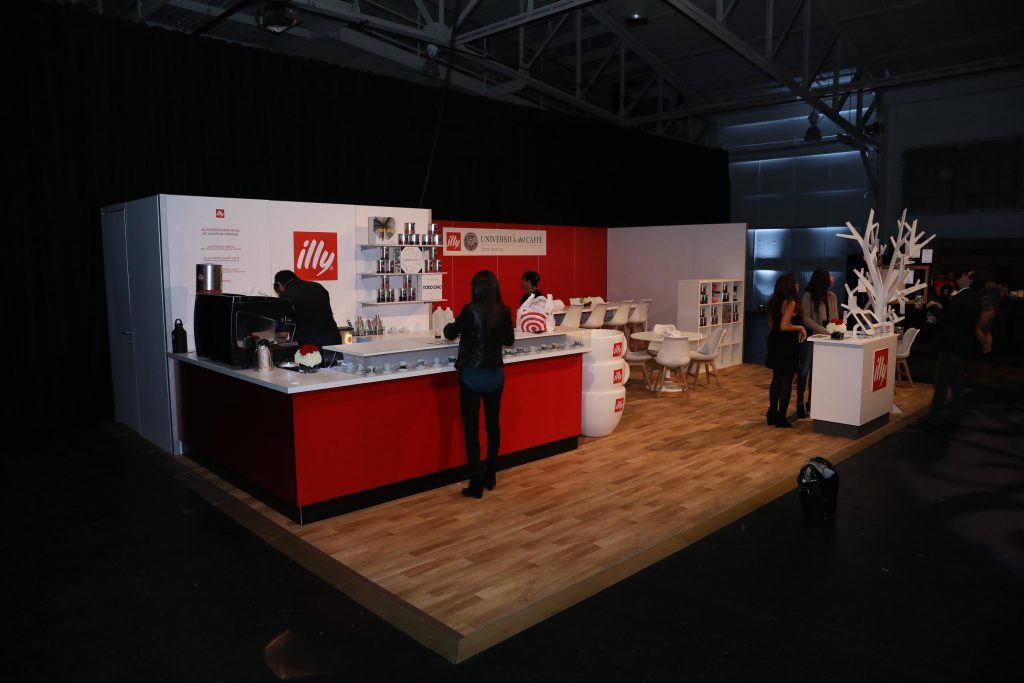Aside from the event content itself, networking is one of the top reasons people attend events of any kind. Whether it’s a sales-focused, in-house corporate event, an education event, or a big trade show, networking is a core activity that almost every attendee finds valuable. But not everyone finds networking easy, and that’s where these icebreaker ideas and fun networking games can bring value to your next event. Add some of these networking activities to help attendees get more out of networking—and from the whole event.
Tips for Choosing Icebreakers and Networking Games
There are so many options for networking activities and icebreaker games, but you likely only have time for one or two. And you want to make sure you choose games that work for the group you have. Use these quick tips as a guide to help you choose the right games for any particular audience.
Simple: Choose games with simple rules that are easy to explain and understand. It shouldn’t take longer than 30 seconds to 1 minute to explain any game.
Interactive: Icebreaker activities shouldn’t require people to spend lots of time thinking of what to do or say. The focus should be squarely on interaction.
Appropriate for the purpose: Icebreakers are supposed to help people feel more at ease with one another. Don’t pick games that might make attendees feel uncomfortable or on-the-spot—it’s counterproductive to icebreaking to ask participants to talk about their most embarrassing failures or their deepest fears, for instance. Those kinds of games may be appropriate for team-building exercises, but not necessarily for event networking.
Appropriate for the group: Some games ask people to share minor details of their personal lives or might involve joining hands or similar kinds of touching. These games can be suitable for a group of people who are somewhat familiar but aren’t necessarily right for a group of complete strangers.
Full-Session Networking Games and Icebreaker Activities
1. Human Bingo
This networking game requires that you make up some bingo cards in advance. This should look like a 5×5 table or matrix, with a total of 25 squares. Each square contains a specific description or criterion. You can include a mixture of work- and industry-related descriptions and more casual things as well to add some fun. Some descriptions might include:
- Works in sales
- Started a new job within the last year
- Has worked in the industry more than five years
- Is looking for a mentor
- Has a pet bird
- Traveled overseas within the last six months
This game can run throughout the duration of the networking session or until at least one person gets bingo.
To play, everyone gets a bingo card. As they meet different people during the networking session, they check off qualifying squares. The person who gets bingo first—by checking off a full horizontal, vertical, or diagonal line—is the winner.
2. Business Card Collection
Like the bingo game, this networking game facilitates the mix-and-mingle of event networking by turning the game into a contest. Not everyone enjoys networking, and for the more introverted members of the group, the competition aspect can provide a little encouragement to get started.
This game is one that runs throughout the duration of the networking event. To play, each person should collect a business card from everyone they meet during the session. The person who has the most cards at the end is the winner.
3. Speed Networking
Speed networking is a fun way to maximize the number of new connections that each attendee can make within a single session. And the introverts in the group love this one because it has an element of organization that makes networking feel much less intimidating.
To set up a speed networking event, create for each attendee their own personal schedule of meetings with other attendees. Each round of meetings should last no longer than five to seven minutes. In a 90-minute networking session, this should provide enough time for at least 10 individual meetings.
For each attendee, you’ll provide a schedule of meetings, along with some brief details about each of the people on their schedule. Speed networking has become popular enough that there are software tools you can use to speed up the process of matching attendees and creating schedules, such as MeetMatch and SpeedNetworking.com.
4. Roundtable Discussions
An alternative to speed networking, this activity splits attendees up into several groups. To do this, you’ll create groups based on shared attributes, such as:
- Location
- Job title
- Industry
Then use a series of prompts or questions to guide the discussion. You can keep it strictly professional with questions about the event and work or mix it up with questions about hobbies, travel, and other subjects. The key is just to keep the conversation moving, so everyone gets a chance to speak and learn a little about the others at their table.
5. Scavenger Hunt
A perennial favorite for both networking and team-building sessions, a scavenger hunt can be a great way to get people working together. By spending some time working collaboratively on an organized activity, people can learn a surprising amount about their teammates in a short time. It’s also easy to customize a scavenger hunt according to the event, venue, and city to come up with something fun and unique.
This activity can easily be converted into a virtual or hybrid event format just by changing up the list of items. For a virtual scavenger hunt, you can create a list that includes household items—for instance, a fancy coffee mug or a red towel—and add some items that can be found online, such as a depiction of the Mona Lisa or a particular song or movie quote.

Quick Icebreaker Games and Networking Activities
These activities are designed to be completed fairly quickly, and most will take only 10 to 15 minutes. Some are suited to in-person events only, but many can convert easily into an online format and are just as suitable for virtual events as for live ones.
6. Guess My Name
For this one, nobody is allowed to wear name tags, so it may work best as the first game of the session! With this game, participants aren’t allowed to just tell people what their name is—they have to guess. They can give as many clues as they like, as long as they don’t actually say their own name.
7. Rapid-Fire Question Time
Separate the group into pairs. Each pair gets one minute to ask and answer rapid-fire questions. You can either provide the questions or let people ask their own. After one minute, everyone finds a new partner. Rinse and repeat, until you’ve been through the process at least 8 to 10 times.
8. Common and Unique
Divide attendees into groups of five or six. Then give the groups no more than five minutes to come up with three things everyone in the group has in common, plus one characteristic that’s unique to each member of the group.
9. Sticky Note Questions
Write a single question on the backs of a series of sticky notes, so you have enough for one question per attendee. Then stick the notes up on a whiteboard or a piece of cardboard. One by one, each attendee should choose a sticky note at random and answer the question.
You can make each question unique or choose a smaller number of questions so several people answer the same question. But as with all question-oriented activities, make sure they’re all similar in terms of tone and subject matter.
10. Candy Bowl
Prepare a bowl of around 8 to 10 different kinds of candy ahead of time, and bring it to the event. Have everyone pick out one piece. Once everyone’s picked their piece, reveal that every type of candy represents a different question. For the next part, everyone answers the questions according to what kind of candy they picked.
Make sure all the questions are similar in tone and importance. You don’t want to end up putting random people on the spot just because they chose a particular piece of candy!
11. Snap
Give every attendee a playing card or some other kind of themed card. Then have them find the person who has a matching card. Alternatively, give cards out so three to four people have matching cards, then instruct everyone to form groups according to what cards they have. Then follow it up with a small group activity such as Common and Unique (See #6.).
12. Paper Towel Challenge
Pass a roll of paper towels or toilet paper around the group, and ask everyone to take some—but don’t explain why or stipulate how much they should take. Once everyone’s got some, they must share the same number of facts about themselves, as the number of pieces they took.
13. What’s on Your Phone?
This game can be played a couple different ways. The quick way is to go round the group and have everyone share the first (or second, fifth, or any random number) photo on their roll.
The longer option is to make it a kind of scavenger hunt, with points awarded for having particular photos, apps, or other items on their phone. For instance, points might be awarded for:
- A video selfie
- A photo of a pet
- A contact whose name begins with the letter K
- A battery that’s over 50% charged
- An empty email inbox
- An active alarm or alert
- A text message that’s at least one year old
- A unique ringtone
- More than 100 songs
- More than 500 pictures
14. Switch Sides
For this one, you need a list of prepared questions that can each be answered with yes or no. They should be simple, low-stakes questions that are easy to answer. For instance:
- Have you ever visited a different country?
- Have you worked at your current job for longer than five years?
- Do you like pickles?
Divide the room into two halves or sides—one for yes and one for no. For each question, everyone should move to the side of the room that represents their answer.
15. Toss the Mic
Grab a Catchbox or other throwable microphone for this rapid-fire question game. The MC should ask a question, then toss the mic to a random attendee. They answer the question, then throw it on. You can either have them throw it back to you or to another attendee to ask them the same question. This one can be a lot of fun for the sheer novelty factor, plus the activity gets people warmed up both literally and figuratively!
16. Animal Noises
Give every attendee a piece of paper with the name of an animal written on it, so that for every animal, at least two or more people have the same one. Note: All the animals you choose should make recognizable noises! To play the game, everyone must make the noise of their chosen animal, while also trying to find others who have the same animal they do.
17. Two Truths, One Lie
For this popular game, each player tells two things about themselves that are true and one thing that isn’t. Everyone else must then ask questions to try and figure out which of those things is the lie.
Icebreaker Questions for Networking Sessions
Use these questions as-is for activities like Candy Bowl and Toss the Mic. Or use them as inspiration to come up with your own set of questions.
- What was your first job, and what company did you work for?
- You’re stranded on a desert island: Choose one book and one movie to take with you. What are your favorites, and why?
- Choose one historical figure to talk to: What single question would you ask, and why?
- What’s your favorite inspirational quote, and what is the lesson it taught you?
- If you had a superpower, what would it be? (If you want to encourage creativity, stipulate that it can’t be any superpower depicted in an existing comic or movie franchise!)
- What was your most significant workplace challenge? How did you solve it?
- What’s the most interesting place you’ve ever visited?
- What was your favorite subject in school? Has that interest carried over into your professional life?
- Do you prefer to work in a team or fly solo? Why?
- What technology do you think has changed the world the most, and why?
- What hidden talent or skill do you have that most people don’t know about?
- Are you a night owl or an early bird? What do you like most about being that way?
- What’s the longest you’ve ever gone without checking your phone?
Networking Games Set the Scene for a Valuable Networking Experience
Networking is an activity almost everyone finds valuable but not everyone enjoys or is good at! That’s why networking games and icebreaker activities are such an important part of many corporate events. They help people feel more comfortable and relaxed, so they’re more likely to have a valuable experience at your networking event and will be more likely to be interested in your future events!










